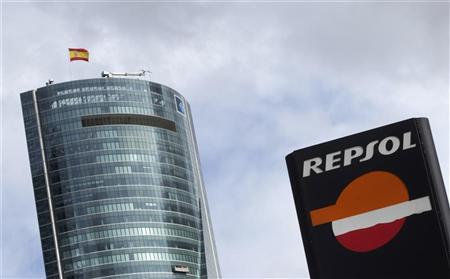Argentina's move to nationalize local oil company YPF, controlled by Spain's Repsol, has scuppered years of planning by China's Sinopec Group to buy the South American company, sources said.

Bankers said China's second-largest oil company had held talks with Repsol to buy its controlling 57-percent stake in YPF. Chinese website Caixin.com cited a source as saying Sinopec had reached a non-binding agreement to take over YPF for more than $15 billion.
But plans by Argentine President Cristina Fernandez to seize control of YPF, which have incensed Spain and sparked international criticism, have killed any hopes that state-owned China Petrochemical Corp (Sinopec) could seal a deal, they said.
"It's too hairy for any Chinese major to put in that much money, unless there is a special relationship with the Argentinian government, which I doubt," said a mergers and acquisitions banker, who has advised Chinese state-run oil companies on overseas acquisitions.
"This is a challenging situation for anybody given the government action. To me it looks like political suicide to now allow a Chinese company to own YPF soon after announcing the nationalization. I don't they can go flipflop like that."
Bankers said Sinopec's interest in YPF went back at least five years.
The Caixin.com report said Sinopec was in talks with Repsol to buy YPF despite the nationalization threat and the Financial Times said Repsol had not informed Argentina of the discussions with the Chinese oil firm.
Sinopec declined to comment. "We don't comment on market rumors," Sinopec Group spokesman Huang Wensheng said late on Tuesday.
YPF has been under intense pressure from Fernandez's center-left government to boost production and its share price has plunged due to months of speculation about a state takeover.
Caixin.com's report said Sinopec believed YPF's oil blocks in Argentina hold large development potential and it was confident it could meet the Argentine government's requirements to accelerate development and production.
Repsol Chairman Antonio Brufau declined to comment on the Sinopec interest in YPF but at a news conference on Tuesday said the company had received lots of international interest in YPF.
ARGENTINE RISKS
Banking sources said even if Repsol reached an agreement with a foreign company like Sinopec, the deal would not materialize because the Argentine government would block the transaction.
"Maybe it is an opportunity but it is a political minefield," a banking source familiar with Chinese oil companies' overseas strategy said.
Some Spanish media reports this week that CNOOC Ltd, China's largest offshore producer, was looking at buying YPF were dismissed because the company had struggled to expand in the country.
Sources familiar with CNOOC's acquisition strategy cited a decision in November by the firm's Bridas Energy Holdings unit to terminate a $7 billion deal to buy BP Plc's 60 percent stake in Argentina-based oil-and-gas group Pan American Energy LLC (PAE). Insiders said the deal collapsed because BP and CNOOC could not win Argentine regulatory approval.
BRAZIL
Fernandez previously nationalized private pension funds and the country's flagship airline. Other countries in South America have carried out similar moves in recent years, most noticeably Venezuela, undermining their credentials with foreign investors.
That is likely to mean Chinese energy firms place greater emphasis on securing assets in Brazil, where analysts say the political landscape is relatively more stable and open to foreign investors.
"I am not too bothered about Argentina. I am more bothered about Brazil. The value of Sinopec Group's upstream business is in Brazil not in Argentina," said Scott Darling, director of Barclays Capital's Asia oil-and-gas research.
Sinopec Group spent $7.1 billion to buy 40 percent of Repsol's deepwater oil assets in Brazil in 2010.
In November last year, Sinopec agreed to pay $3.54 billion to Portuguese oil firm Galp Energia for a 30 percent stake in its deep-sea oil assets in Brazil.
Sinopec Group, parent of Asia's largest refiner Sinopec Corp, has launched at least 74 acquisition deals worth $48.1 billion since 2005, Thomson Reuters data shows, as part of China's attempts to secure resources to feed the country's rapid growth.
The group, which bought Occidental Petroleum Corp's Argentine assets for $2.5 billion last year, wants to more than double its equity oil output from overseas projects to over 1 million bpd by 2015 from 2011.